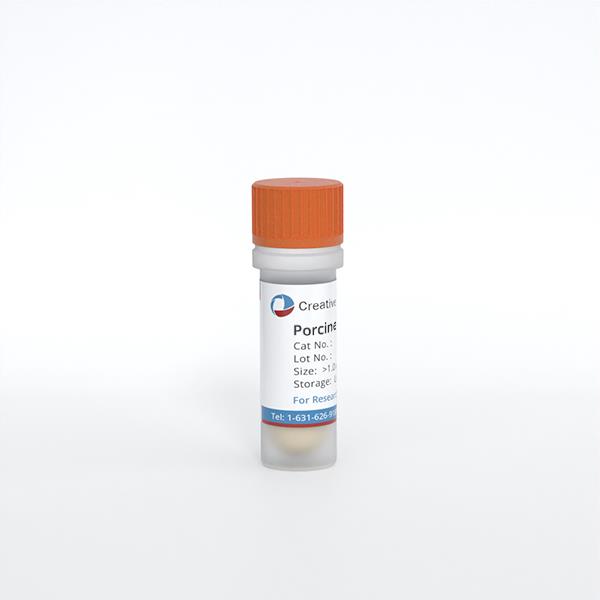Description
Porcine Prostate Fibroblasts from Creative Bioarray are isolated from prostate tissue of porcine. Porcine Prostate Fibroblasts are grown in T75 tissue culture flasks pre-coated with gelatin-based coating solution and incubated in Creative Bioarray Complete Growth Medium. The cells are shipped at passage 2. Each vial contains at least 0.5x10^6 cells per ml and is delivered frozen.
Quality Control
Porcine Primary Prostate Fibroblasts are tested for negative expression of von Willebrand Factor Expression/Factor VIII, cytokeratin 18, and alpha smooth muscle actin. Porcine Primary Prostate Fibroblasts are negative for bacteria, yeast, fungi, and mycoplasma. Cells can be expanded for 3-5 passages at a split ratio of 1:2 under the cell culture conditions specified by Creative Bioarray. Repeated freezing and thawing of cells is not recommended.
Storage and Shipping
Creative Bioarray ships frozen cells on dry ice. On receipt, immediately transfer frozen cells to liquid nitrogen (-180 °C) until ready for experimental use.
Never can cryopreserved cells be kept at -20 °C.
Citation Guidance
If you use this products in your scientific publication, it should be cited in the publication as: Creative Bioarray cat no.
If your paper has been published, please click here to submit the PubMed ID of your paper to get a coupon.
Is the cell passaging usually 1 in 2?
It depends on different cells, for example, if some cells grow very fast, such as 4T1 cells, one-tenth of the centrifuged suspension is enough for passaging. Some cells are very slow, such as BT474, and we need to observe more to find out the most suitable substitution ratio.


